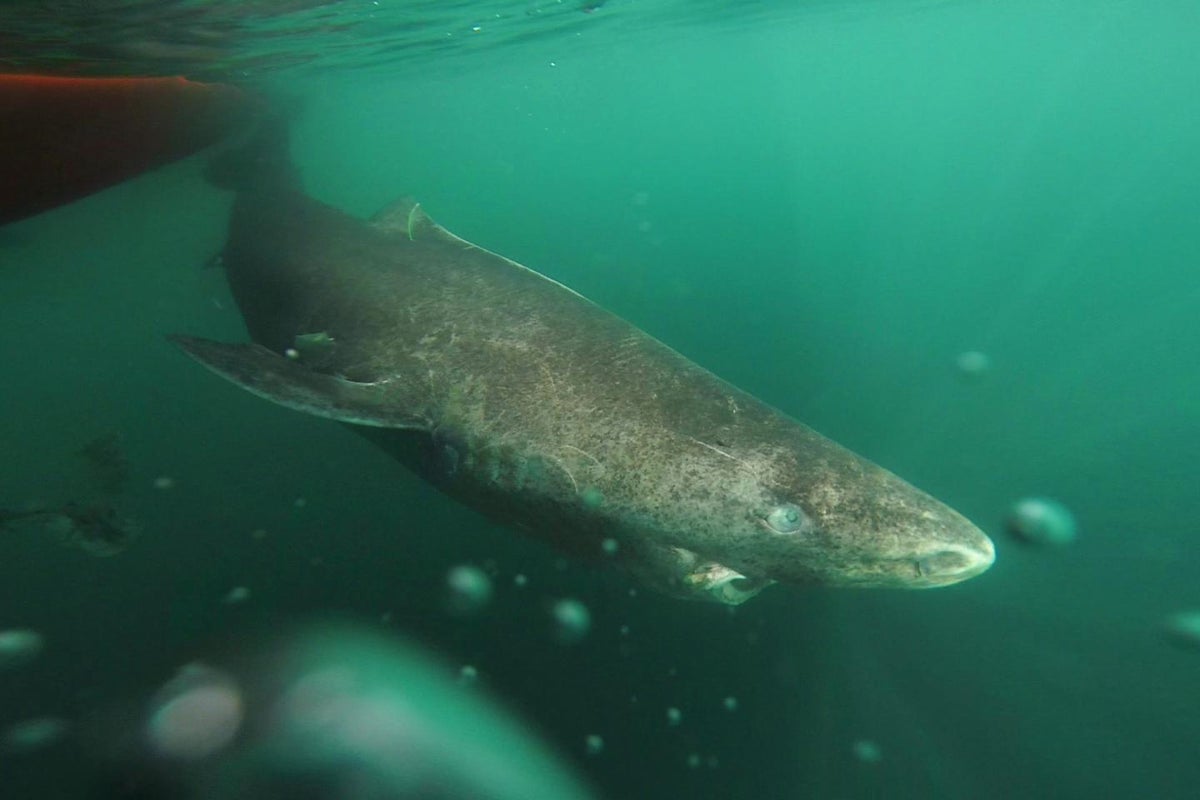
Support truly
independent journalism
Special muscle metabolism plays a key role in the incredibly long lifespan of the Greenland shark that lives to about 500 years, according to a new study that may lead to better anti-ageing therapies.
The Greenland shark, which grows to nearly six metres long and weighs around a tonne, prowls the deep, cold waters of the ocean and is the longest-living vertebrate species.
A Greenland shark born back when William Shakespeare lived could still be swimming today, researchers said.
Scientists previously believed its long lifespan was likely due to the ultracold environment and its very minimal movement, but recent research indicates more complex reasons.
In a new study, researchers conducted a series of tests on samples extracted from the shark, including enzyme assays on muscle tissue samples, to measure metabolic activity at different shark ages and temperatures.
They surprisingly did not find a significant variation in the muscle metabolic activity of the sharks at different ages, suggesting their metabolism does not decrease over time.
This aspect of its metabolism likely plays a key role in the shark’s longevity.
“This is quite different to most animals which tend to show some variation in their metabolic enzyme activity as they age,” Ewan Camplisson, one of the study’s authors from the University of Manchester, said. “The results support our hypothesis that the Greenland shark does not show the same traditional signs of ageing as other animals.”
Scientists also found that the shark’s muscle enzymes are more active at higher temperatures, meaning they are not specifically adapted to a cold environment.
“Otherwise we would have expected to see less of a temperature-related difference in activity,” Mr Camplisson explained.
The study notes that the shark species is struggling to adapt to a changing climate and may be at risk of extinction.
“A female Greenland shark may not become sexually mature until it is 150 years old. With such a long generation time, the species will have far less of a chance to adapt to anthropogenic changes in their environment,” Mr Camplisson said.
Further research on the shark could offer insights to protect and improve human heart health, scientists said.
“By studying the Greenland shark and its heart, we may be able to better understand our own cardiovascular health,” Mr Camplisson said.
“These are issues that become progressively more common and severe with increasing age.”







